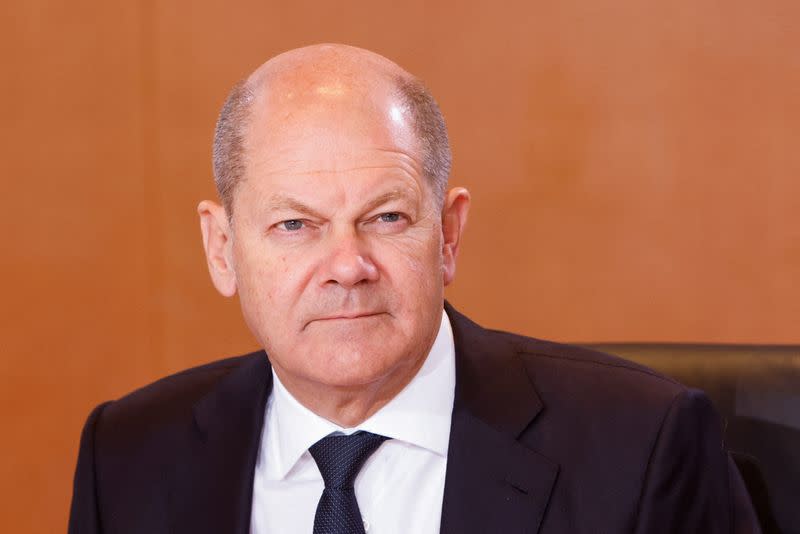Scholz 'very confident' EU will soon agree Russian oil price cap

BERLIN (Reuters) - German Chancellor Olaf Scholz said on Wednesday he was "very confident" the European Union would soon agree on a price cap for Russian oil as negotiations were underway in Brussels.
The Group of Seven nations (G7) is looking at a price cap on Russian sea-borne oil in the range of $65-70 per barrel, a European Union diplomat said earlier on Wednesday.
Ambassadors from the 27 EU countries are discussing the G7 proposal with the aim of reaching a common position by the end of the day. Views in the EU are split, with some pushing for a much lower price cap and other arguing for a higher one.
The G7, including the United States, as well as the whole of the European Union and Australia, are slated to implement the price cap on sea-borne exports of Russian oil on Dec. 5.
The move is part of sanctions intended to slash Moscow's revenue from its oil exports so that it has less money to finance its invasion of Ukraine.
Russia must end its "bombing terror" against Ukraine's civilian population, Scholz said during a news conference. It could no longer win the war on the battlefiled so should stop the killing and make way for peace negotiations, he said.
(Reporting by Andreas Rinke and Sarah Marsh; Editing by Mark Potter)

 Yahoo Finance
Yahoo Finance 